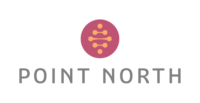Decision-making and your year ahead
Several years ago when I was speaking at a conference, the conversation turned to my decision to change my career- and my life- after 50. Someone in the audience asked, “How do you know you’re making the right choice?” My answer: “When I envision the decision- regardless of what it is- how do I FEEL about it? If I find myself feeling a bit scared, a tad uncomfortable, a little excited…Then I know it’s the right step forward.”
Evolving is not about staying in your comfort zone and letting the external environment manage you. It’s about evaluating choices and making decisions, trusting that we always have the power to pivot or change course at any time.
Think back to early January, exactly one year ago.
How successful have you been in achieving your resolutions? On meeting the goals you set?
While intention-setting and looking ahead certainly have their place in strategizing and creating a plan for your long-term vision coming to life, it may be time to take a different approach as you launch the next year in your personal and professional life.
As January is often the time for making changes in your life, breaking these intentions and goals down to the individual decisions you will make each day is certain to set you up for success as you enter the year ahead. What better moment to make little – AND big – decisions that will set you up for a solid, stable year that not only brings success but also feels good?
Categorizing your choices

The brain makes thousands of decisions each day. We can’t help but overlook some of these decisions as we rely on external influences and internal unconscious habits to reduce the mental load. In fact, we are faced with trillions of daily data points, yet our brains use very little after filtering those points through our beliefs, values and habits. When we rely too heavily on these background processes, our lives can begin to feel like they are moving on without us, and we may end up at the end of the year wondering where all the time has gone.
Creating a mindful decision-making practice takes exactly that: Practice.
You can help your mind focus on the most important decisions – those choices you know will make or break your future – by breaking down your daily choices into manageable and actionable categories. Organizing these categories based on the measurable, visible changes you want to see in your life will encourage you to see and take meaningful action.
As you read through the following questions, take the time to investigate your initial thoughts. Perhaps an action will jump from the page to your consciousness! In this case, record your thoughts in a journal or planner (and be certain to place them in a prominent place you’ll return to each day). The important thing here is that we are moving from the reflection and contemplation we talked about last month into making decisions and taking action.
Seven questions to help guide your decision-making

Question #1: What abilities do you want to develop?
Take the time to reflect on your strengths and superpowers, and consider the impact you want to have on the world. Do you want to share your knowledge or improve certain areas of your leadership? Do you want to launch a new business and build your entrepreneurial muscles or implement a meditation practice to become more mindful of your daily experience? Our strengths are just like muscles. In order to grow- and not lose power or impact- they must be worked consistently.
Question #2: What obstacle or fear do you wish to overcome?
Enough is enough. Joe Dispenza put it perfectly: “If you want a new outcome, you will have to break the habit of being yourself, and reinvent a new self.” Now is the time to name and face your fears and obstacles head-on. You may even experience these so-called negative impacts on your life as opportunities to make different decisions that will lead to different outcomes. In other words, this negativity severely impacts all areas of your life: your relationships, your stress levels, your confidence, your focus…Lower the volume on your internal negative voices, and step into your power. Enough is enough.
Question #3: What unique positioning do you want to establish?
Embrace your uniqueness! You are a powerful, capable being. Discover and make a commitment to operating from your strengths. If you are unclear on your value, reach out to a coach or mentor who can help you identify exactly what skills, traits, and abilities you have. When you are clear on the talent and strengths that make you you, you become clearer on what makes your professional and personal brands unique.
Question #4: How can you invest in yourself?
Make a list of the activities, responsibilities, financial contributions, and commitments already a part of your daily schedule and routine that pour back into you. Next, generate a list of what’s missing from your original list. What roles can you take on that will help you stretch beyond your comfort zone and push you to become the best version of yourself? If your list was empty, where can you rearrange your decisions to ensure your life is structured around the one person it affects most – you?
Question #5: How can you invest your time?
When you honestly and objectively record and analyze where you spend your most precious asset, you may be surprised at how much time you sink into efforts that do not align with what is truly important to you. You may also be shocked by the amount of free time you do (or don’t!) have. Begin to make decisions about your time based on what is most impactful, on what brings you the biggest return on your investment, prioritizing who and what must come first. Then, consider up-leveling your time management to make the most of your time, ensuring that you are productive during “work” time and restoring and regenerating energy in your “down” time. Planning for rest and prioritizing relaxation is huge as it’s during these times when you’re best able to dream, create, exercise, meditate, sleep, breathe…All the things that support the best version of yourself!
Question #5: What are the values and priorities that will drive your action?
Clearly defining who and what is important to you will help you determine the values and priorities that influence your daily decision-making. What impact do you wish to have on the world? What do you wish for your legacy to be? What do you want to be known for? What do you want to create that doesn’t already exist in the world?
Question #6: Who are the people that will help you stay on track?
Define the list of people who boost you toward your long-term vision, surrounding yourself with positive people. Look for folks who are already doing what you want to be doing. This is your time to ask for support! Chances are, there is someone out there who can help you, teach you, or be a part of your community. If you already have a solid foundation of people around you who fulfill these roles, consider how you will choose to spend time with them each day.
Question #7: How will you enjoy your work?
Asked another way: What work structure will ensure your health, happiness, and longevity? It’s unrealistic to expect human beings to always be on. Take a long look at the efforts you have been making toward work in the past, and decide whether to increase, decrease, or shift those efforts to more closely align with the life you want to lead. Does life feel fulfilling while working two days a week, or five? Do you find yourself living for the weekend, and experiencing Sunday dread? This is your invitation to revise your work-life balance; if you find that your current role or career does not align with the way you wish to be spending your time, it may be the perfect moment for a change.
Take each day one choice at a time.
“When your dream is bigger than you are, you only have two choices: give up or get help.”
– John Maxwell
Begin thinking of each choice, each day, as an opportunity to step closer to the greatest, grandest vision you have for yourself and your life. When you notice yourself straying from your vision, making choices that take you away from the core values you’ve defined for yourself, take a moment to pause. Reflect. Wonder to yourself: What may have caused this? Is there something in my environment that I can change in order to make this decision differently next time?
“To be empowered- to be free, to be unlimited, to be creative, to be genius, to be divine- that is who you are…Once you feel this way, memorize this feeling; remember this feeling. This is who you really are.”
Joe Dispenza, Breaking the Habit of Being Yourself: How to Lose your Mind and Create a New One
Be gentle with yourself, and remember that managing any change in your life, no matter how small or significant it may seem, takes consistency, repetition and commitment.
We would be honored to be your sounding board as you navigate planning for your year ahead and creating new structures for decision-making in your everyday personal and professional life! Reach out to explore coaching options and opportunities with Dominique!



